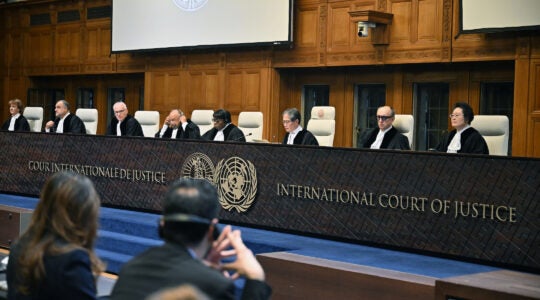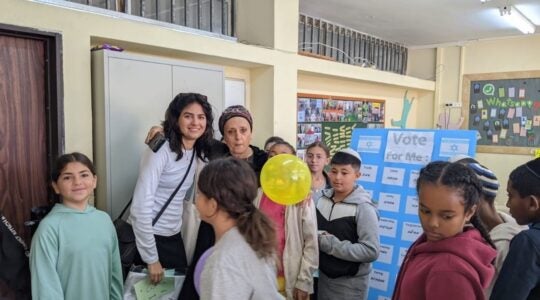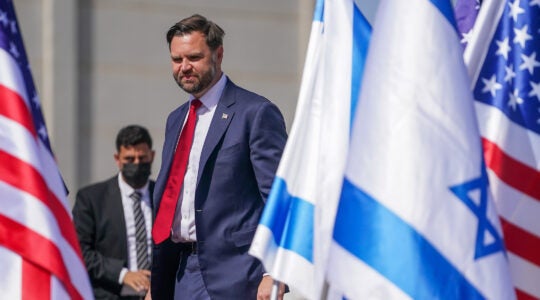WASHINGTON (JTA) — Calls are mounting in Washington for the launch of new Israeli-Palestinian talks.
After meeting Jan. 8 with Jordanian and Egyptian officials in Washington, U.S. Secretary of State Hillary Rodham Clinton said she was calling for talks without preconditions focused on all the final-status issues, including not only borders but also Jerusalem, refugees and water rights.
Clinton’s comments came as George Mitchell, President Obama’s top Middle East negotiator, headed to the Middle East for meetings aimed at accelerating talks.
The same message was hammered home by members of a bipartisan delegation of U.S. Congress members who visited the region last week.
“The more time that goes on without those negotiations and without progress taking place, the more Hamas is strengthened,” said U.S. Rep. Debbie Wasserman Schultz (D-Fla.), a deputy whip, in a conference call Jan. 7 toward the end of the group’s Middle East tour.
The Palestinians are resisting returning to talks until Israel makes total its partial freeze on West Bank settlement and expands it to eastern Jerusalem. Israeli Prime Minister Benjamin Netanyahu wants to keep talks to the border issue without reference to Jerusalem or refugees, while the Palestinians want to discuss all issues.
Clinton also wants all issues on the table.
“Resolving borders resolves settlements,” she said. “Resolving Jerusalem resolves settlements.”
Wasserman Schultz said that Palestinian Authority strides in transparent government and security created the basis for immediate peacemaking.
“I was really incredibly impressed with the progress when we went to Ramallah that has occurred within the Palestinian Authority,” she said. “The economic and security progress that has gone on there has made it a lot more likely and puts the Palestinian Authority in a position where they are a more prepared negotiating partner.”
Wasserman Schultz’s assessment was echoed by others in the group, which included Reps. Robert Aderholt (R-Ala.), Anthony Weiner (D-N.Y.), Jim Matheson (D-Utah), Adrian Smith (R-Neb.), Christopher Murphy (D-Conn.), Gerry Connolly (D-Va.) and Rep. Cynthia Lummis (R-Wyo.).
PA Prime Minister Salam Fayyad “really has made consistent and clear strides cleaning up the government and introducing infrastructure that will help the West Bank be a successful state,” Lummis said.
The sole note of dissent came from Weiner, who in a separate call with reporters immediately after the group’s call ended agreed that Fayyad had done much to end corruption, but suggested that appropriators should still threaten to withhold aid to the Palestinian Authority if it did not agree to enter talks on terms set by Netanyahu.
“There’s no doubt that under Fayyad there’s less corruption,” Weiner said, “but if the Netanyahu administration says it wants to have talks our position as an ally of Israel should be not to provide” the Palestinian Authority with funds.
Wasserman Schultz said her impression was that the Palestinians were ready to resume talks without preconditions, as long as it was done quietly.
“The conversations we had on both sides left me with the impression that there are ways to begin negotiations and to prepare for more significant negotiations without those lines in the sand,” she said.
Wasserman Schultz also said that her Palestinian interlocutors discounted the prospect of a unity government with Hamas, although as recently as last Friday, State Department spokesman P.J. Crowley expressed backing for such a government as long as it abided by international conditions ending terrorism and recognizing Israel.
JTA has documented Jewish history in real-time for over a century. Keep our journalism strong by joining us in supporting independent, award-winning reporting.





